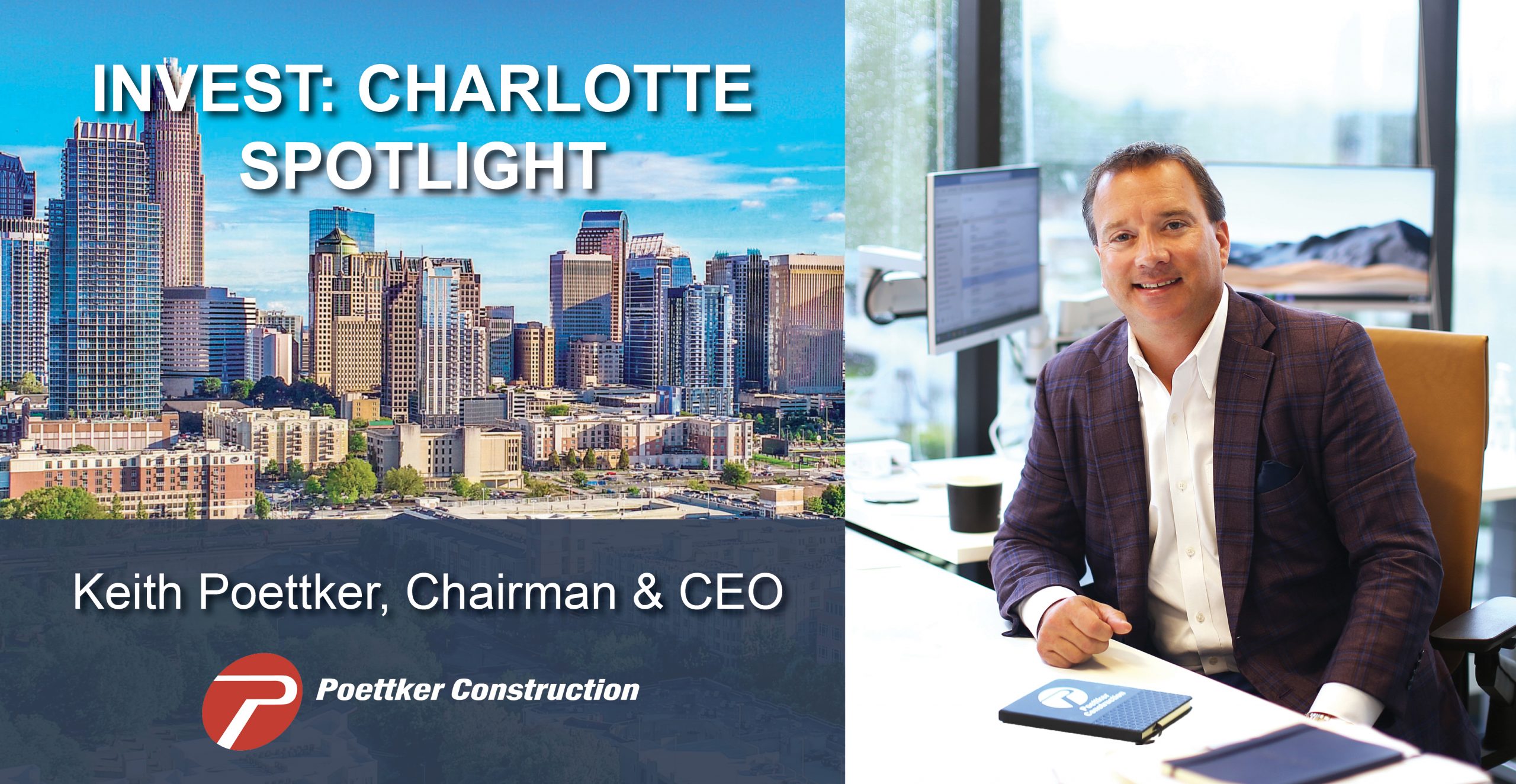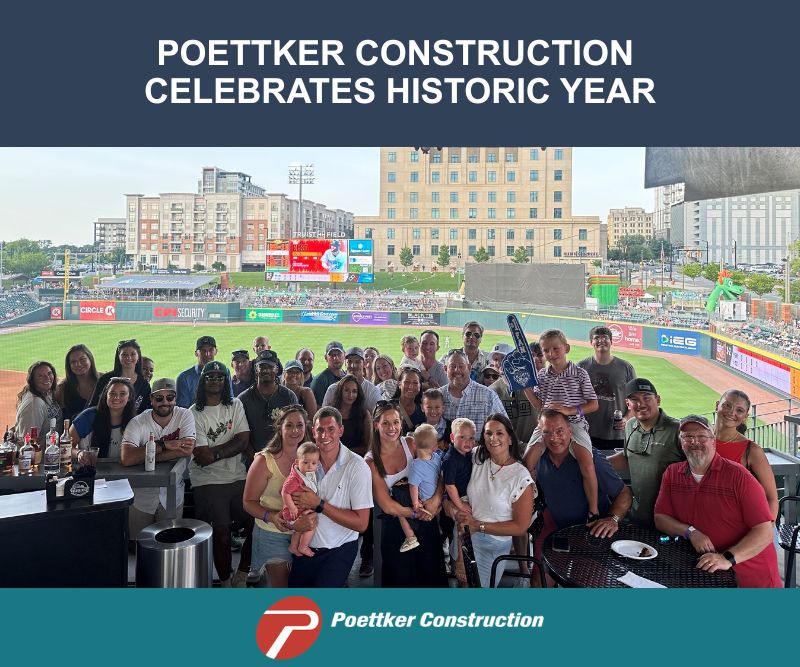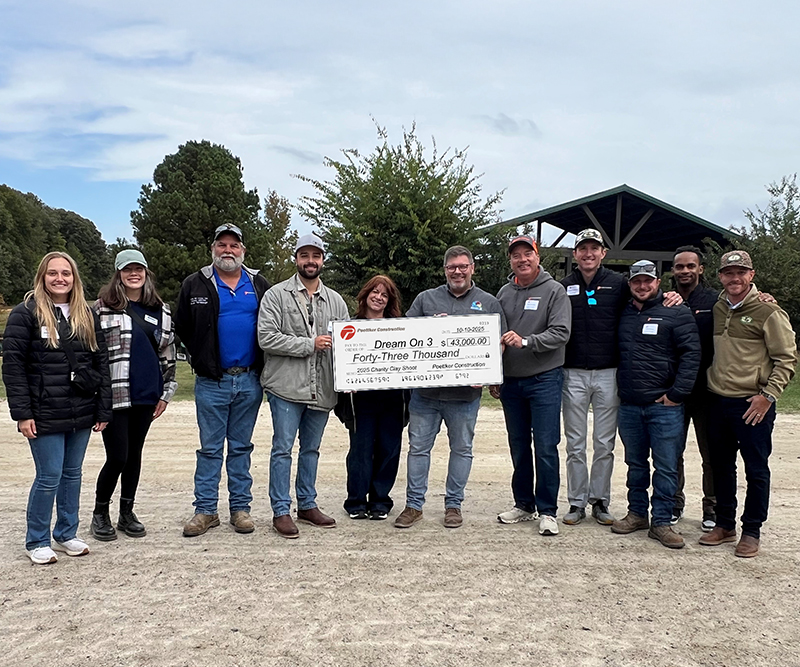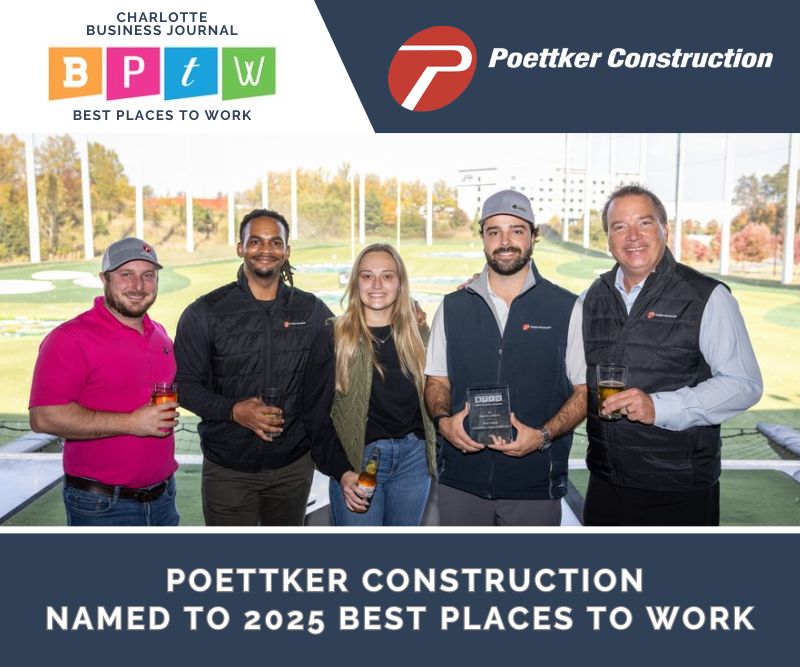
Invest: Charlotte spoke with Keith Poettker, chairman and CEO of Poettker Construction, to discuss the major shifts that are occurring across the industry and why the Charlotte region is ripe for immense development growth.
What have been your key takeaways over the past two years?
We’ve got concerns in the construction industry as a whole. Supply chain issues continue impacting us and are among our biggest hurdles in making sure we’re monitoring and handling our procurement process. That’s a strategic initiative for us because these are global issues that are not going away anytime soon. Finding great talent will also continue to be a big challenge. For our firm, retaining that talent while offering training and upward mobility from within the organization is a big priority. We also want to make sure we’ve got good partners and subcontractors, monitoring their workload and creating an atmosphere where they’re successful.
The infrastructure bill and Inflation Reduction Act are game changers for the United States. The country hasn’t invested in infrastructure in over 50 years at this scale. Leaving it up to state and local governments to do it is not sustainable over that time, so it’s a huge shift.
How do strategic partnerships influence Poettker Construction’s success?
Partnerships vary based on the issue at hand, but having a good relationship and network of individuals that you can rely on in the event of an issue or obstacle, who you can call and cut through the red tape with, that is critical. Otherwise, it encumbers progress and puts project timelines in jeopardy. It’s especially important with subcontractors and supporting one another to a project’s completion.
On the economic development side, you’re building long-term relationships and not necessarily knowing where they’ll go at the start. If you cultivate relationships over time, they tend to bear fruit even if it’s five or 10 years down the road. To expand business and reinforce our talent pipeline, we are heavily involved as mentoring partners in many construction management institutions. Eastern Carolina University has a really strong construction management program we work with and support. Appalachian State University, likewise, has a great program that we partner with.
What is your view of corporate social responsibility in construction today?
The construction industry as a whole is lacking in diversity and inclusion, unfortunately. It is also our responsibility to work on that. It’s hard but absolutely necessary work if the industry is to evolve. We also want to recruit more women in construction. We recognize that this will be a process. However, some of our strongest leaders are women and that’s at all levels, from project managers, superintendents and quality control managers, to senior leadership. It’s something the industry must continue to work on. That’s part of our struggle as an industry, particularly with the trade labor shortages that we’re experiencing. You have to broaden your field of inclusion to not only move the needle on the issue but also to take care of staffing shortfalls along the way.
We also have a tremendous responsibility in terms of sustainability. There’s a lot we can do in terms of innovation in assisting with design recommendations for building more sustainable facilities and lowering our carbon footprint in society. It’s all a part of quality, ultimately, and a tremendous opportunity for us.
In what industries are you seeing the most growth in the Charlotte region?
Charlotte, and the Southeast broadly, is becoming a strong logistics hub across the entire United States. In North Carolina, we have the NC Towers energy initiative that will likely create significant growth in manufacturing and distribution in addition to positioning North Carolina as a clean energy producing state. Warehouse distribution space has had significant growth in the Charlotte region and we don’t see that changing, it could, in fact, keep growing. What’s happening on a global stage is that we’re seeing a lot of manufacturers looking at the United States as a safe place to do business.
On top of that, we have closer ties with Europe than Asia, so it’s creating new supply chain shifts at the global level from the West Coast to East Coast ports. Increasing port capacity and the supporting rail and highway infrastructure to handle that new volume is important. Charlotte sits in a strategic location in that regard. It’s close to several big ports, including Wilmington, Charleston and Savannah. From there, we’ve got a lot of rail and roadway capacity to bring product throughout to the Northeast.
How is technology impacting the construction industry?
You won’t get away from the human component anytime soon in construction. Where technology can really grow is in helping streamline processes. That could be in design development or building retrofits, as-built documentation, or validation of what’s installed versus what’s designed. We have drone technology to fly over areas of buildings and can, relatively quickly, validate that what’s installed is in accordance with the design documents.




